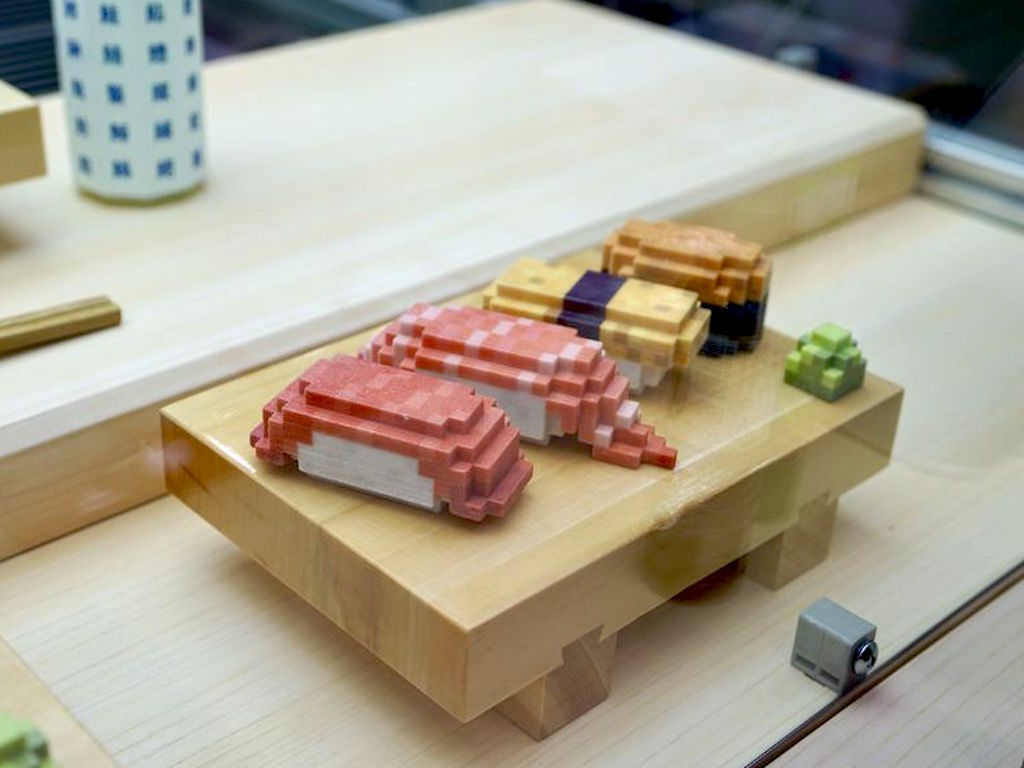3 Mins Read
Japanese future foods startup Open Meals is developing technology for 3D-printed food made from sustainable ingredients that can be transported all over the world. The company has managed to create made-to-order pixelated printed sushi dubbed “8-bit sushi”, which will be debuting in a Tokyo restaurant Sushi Singularity by 2020. This marks the world’s first standardised digital food system, and the company intends to transform the global food system and many issues plaguing it such as food insecurity and biodiversity loss by upgrading its technology to enable sharing, downloading and printing all types of food.
Founded in 2018, Open Meals is a Japanese startup developing 3D printing food technology. The concept – a collaborative project between Yamagata University, marketing company Dentsu, automotive manufacturer Denso and film corporation Tohokushinsha – debuted earlier last year at South by Southwest (SXSW) in Texas. The platform hopes to use its technology to radically change how food is produced and delivered under the current system.
While 3D printing in the food industry isn’t an entirely new phenomenon, the startup is using this technology to customise nutritious food down to the millimetre using a water-based printer. The food cartridges will contain primarily plant ingredients, such as seaweed, enzymes and fibre. Chefs can upload to their “Food Base”, where recipes for each printed dish can be stored and recreated in the future. There is a key focus on nutrition, as the Pixel Food Printer can inject personalised agents, flavours, nutrients and supplementations to the food.

Currently, Open Meals is preparing to launch their first 3D-printed sushi restaurant concept Sushi Singularity, which is set to open in Tokyo in 2020. The restaurant will print sushi, as well as share sushi recipes worldwide through their online platform. In addition, sushi plans will be hyper-personalised based on individual diners’ biometric and genomic data. This tailor-made concept will require customers to send biological samples before they visit the restaurant. The data will then be analysed by health experts to create bespoke dishes injected with nutrients that the customer might be lacking in.
This innovation could revolutionise the currently unsustainable global food system marked by the worst consequences of the climate crisis. An earlier IPCC report by the United Nations revealed that an urgent global food system overhaul is necessary, especially in terms of production and land management, if we are to avoid disastrous consequences such as irreversible global warming, topsoil erosion and volatile weather patterns.
The need to change our current food system made is even more pressing in light of global hunger, an issue that we are making little progress on in Asia. The idea of 3D-printed food would dramatically change food production, making it shareable across the world, and would also cut down on emissions as it would be made from primarily plant based ingredients and other sustainable sources.
Open Meals’ 3D-printed nutrient-injected food concept would also help tackle worldwide health epidemics. Major landmark scientific studies have shown that no two bodies are the same. While general wellbeing guidelines can apply to most of us, we all have individualised responses to food, which require personalised dietary approaches for optimal health. In the future, the company hopes to expand this service within hospitals and nursing facilities too.
Lead image courtesy of Open Meals.




